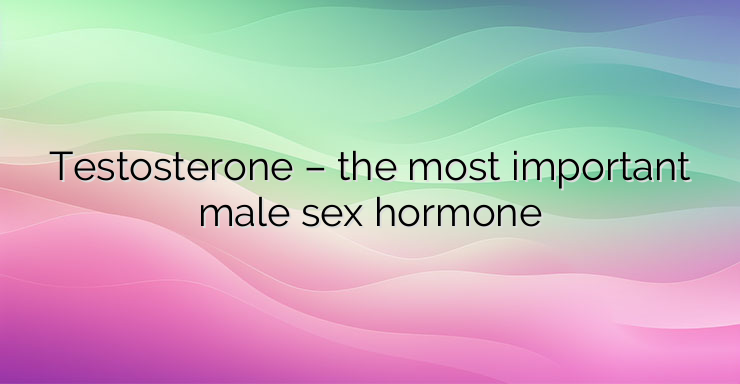Androgens in the male, with testosterone as the main representative, are extremely important for the differentiation of the internal and external sex organs during the intrauterine development of the fetus, the development and maintenance of the secondary sexual characteristics and the reproductive function in the mature male. Testosterone also has a number of functions aimed at the whole organism. It has an effect on metabolic processes in the body, bone and cardiovascular system, and affects the development of behavioral and cognitive abilities in men. In the early period of intrauterine development, the maturation of the so-called “male structures” – Wolff’s genital ducts, which give rise to the male sex organs, are mainly under the influence of testosterone. It is essential for their differentiation into epididymis, ductus deferens and seminal vesicles. Differentiation of the prostate, penis, and urethra requires testosterone to be metabolized by an enzyme (5-alpha-reductase) to 5-alpha-dehydrotestosterone. In men with a lack of this enzyme, the prostate gland does not develop, although the level of testosterone is high enough. The penis and urethra are formed by 7-12 weeks of gestation from intrauterine development. After the formation of the penis, its linear growth continues and is again dependent on androgens. Testosterone has a complex effect on the testicles. There, it is produced by the Leydig cells, where its synthesis is carried out from the starting substrate – cholesterol. In men, 95% of testosterone is secreted into the circulation by Leydig cells and only 5% is synthesized by the adrenal cortex. Sufficiently high concentrations of testosterone (higher than serum) are necessary for the normal course of spermatogenesis. External administration of high amounts of testosterone would suppress the own production by the Leydig cells and lead to disturbances in spermatogenesis. Therefore, men with low testosterone levels and infertility should not be treated with testosterone – stimulation of endogenous testosterone synthesis is appropriate. Secondary birthmarks, formed in the period of sexual maturation – puberty, are formed mainly under the influence of androgens. Their effect occurs through their binding to androgen receptors located on the skin. The highest concentration is in the areas that cover the external genitalia. Beards, moustaches, around the genitals and navel, as well as chest and back hair appear and persist only with the high concentration of androgens inherent in sexually mature males. At the hair follicle level, testosterone acts through the metabolite 5-alpha-dihydrotestosterone, some of which undergo local conversion. The sensitivity of the hair follicle to androgens is genetically determined. Baldness on the crown and forehead of men occurs under the influence of testosterone only in genetically predisposed men. NEWS_MORE_BOX Androgens are necessary for the growth of the larynx, the bulging of the Adam’s apple,the lengthening and enlargement of the vocal cords. Under their influence, the “mutation of the voice” occurs. Androgens stimulate the growth of bones and the formation of the so-called “male” skeleton – broad shoulders, narrow and elongated pelvis. Their high concentrations shorten the duration of growth, while the deficiency of testosterone causes prolonged bone growth. That is why men with hypogonadism are usually tall, mainly because of their long limbs. Androgens have an anabolic effect – they stimulate protein synthesis, muscle fiber hypertrophy, and also the synthesis of erythrocytes and other blood cells. The notion that androgens exert an atherogenic effect is not supported by the fact that low and subnormal serum testosterone levels are associated with an increased risk of damage to the cardiovascular system. For the optimal functioning of the circulatory system and the heart, it is necessary to have a normal and sex-appropriate secretion of androgens. Androgens are also extremely necessary to maintain a man’s self-esteem, mental and physical activity, and to improve his mood.


Leave a Reply